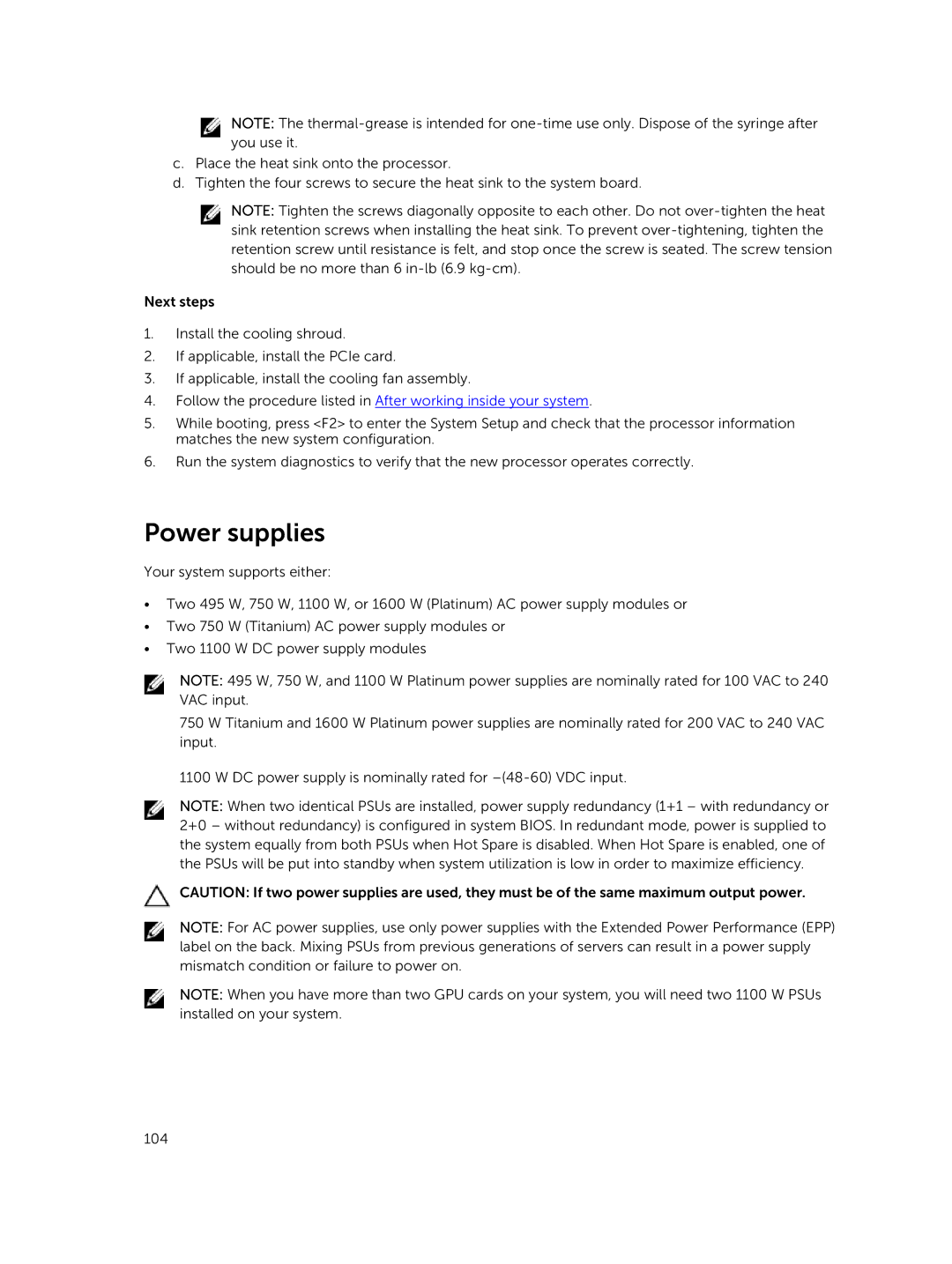
NOTE: The
c.Place the heat sink onto the processor.
d.Tighten the four screws to secure the heat sink to the system board.
NOTE: Tighten the screws diagonally opposite to each other. Do not
Next steps
1.Install the cooling shroud.
2.If applicable, install the PCIe card.
3.If applicable, install the cooling fan assembly.
4.Follow the procedure listed in After working inside your system.
5.While booting, press <F2> to enter the System Setup and check that the processor information matches the new system configuration.
6.Run the system diagnostics to verify that the new processor operates correctly.
Power supplies
Your system supports either:
•Two 495 W, 750 W, 1100 W, or 1600 W (Platinum) AC power supply modules or
•Two 750 W (Titanium) AC power supply modules or
•Two 1100 W DC power supply modules
NOTE: 495 W, 750 W, and 1100 W Platinum power supplies are nominally rated for 100 VAC to 240 VAC input.
750 W Titanium and 1600 W Platinum power supplies are nominally rated for 200 VAC to 240 VAC input.
1100 W DC power supply is nominally rated for
NOTE: When two identical PSUs are installed, power supply redundancy (1+1 – with redundancy or 2+0 – without redundancy) is configured in system BIOS. In redundant mode, power is supplied to the system equally from both PSUs when Hot Spare is disabled. When Hot Spare is enabled, one of the PSUs will be put into standby when system utilization is low in order to maximize efficiency.
CAUTION: If two power supplies are used, they must be of the same maximum output power.
NOTE: For AC power supplies, use only power supplies with the Extended Power Performance (EPP) label on the back. Mixing PSUs from previous generations of servers can result in a power supply mismatch condition or failure to power on.
NOTE: When you have more than two GPU cards on your system, you will need two 1100 W PSUs installed on your system.
104
